On April 18, Tsinghua established the Department of Psychological and Cognitive Sciences, coinciding with the University’s upcoming 113th anniversary. This initiative represents a pivotal move in Tsinghua's disciplinary enhancement efforts, aligning with national strategies and human development imperatives.
Qiu Yong, secretary of the CPC Tsinghua University Committee; He Zhimin, member of the Standing Committee, deputy secretary-general of the CPPCC National Committee and vice-chairman of the Central Committee of the China Democratic National Construction Association; Yao Hongwen, Party chief and director of the National Center for Mental Health; Lin Chongde, a senior professor at Beijing Normal University; Su Yanjie, chairman of the Chinese Psychological Society; Zhou Wenye, the son of Professor Zhou Xiangeng, who made pioneering contributions to the Department of Psychology at Tsinghua; and Yan Wangjia, chairman of Venustech, attended the event. Yang Bin, Tsinghua vice president, presided over the ceremony.
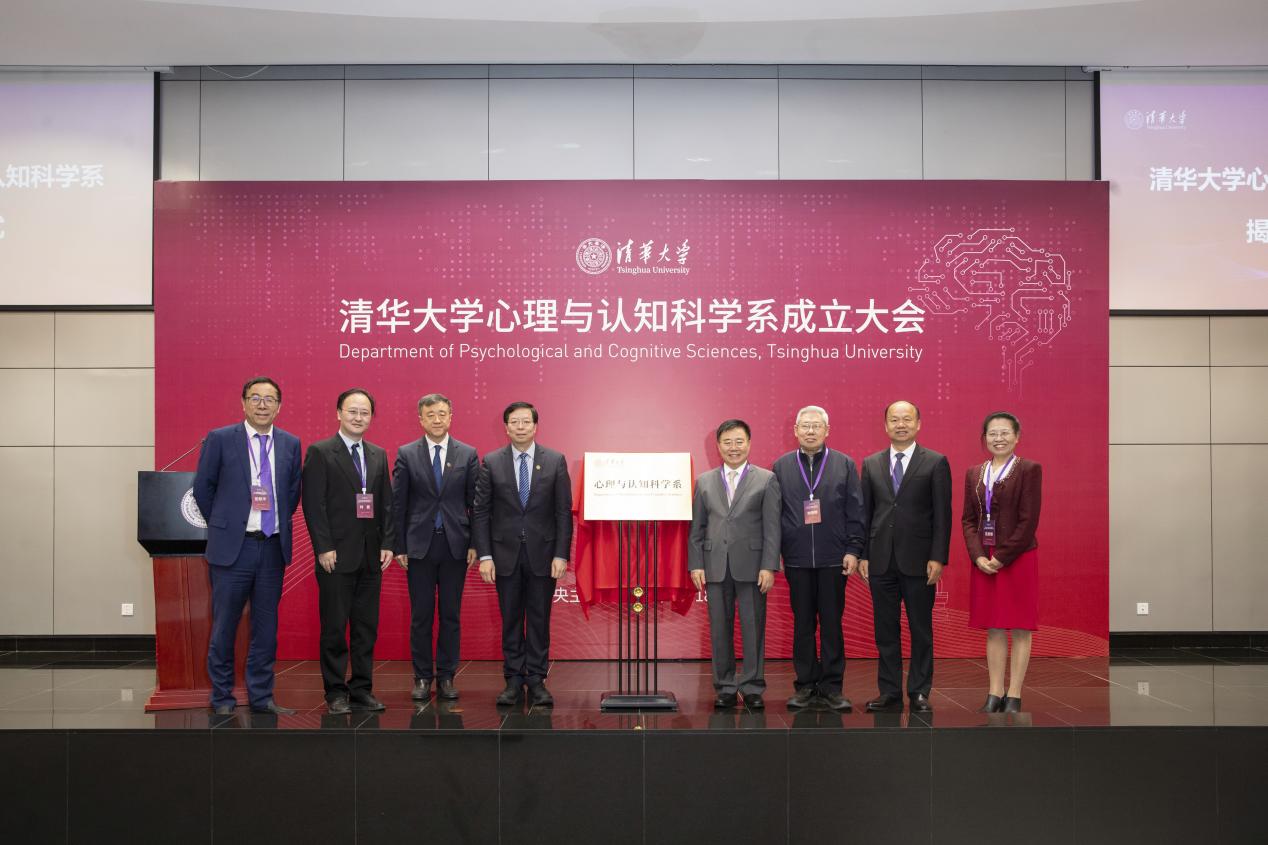
Guests unveil a plaque.
During the event, Qiu Yong, He Zhimin, Yao Hongwen, Lin Chongde, Yang Bin, Su Yanjie, Liu Jia, dean of the Department of Psychological and Cognitive Sciences, and Peng Kaiping, a professor of the Department of Psychological and Cognitive Sciences, unveiled a department plaque.
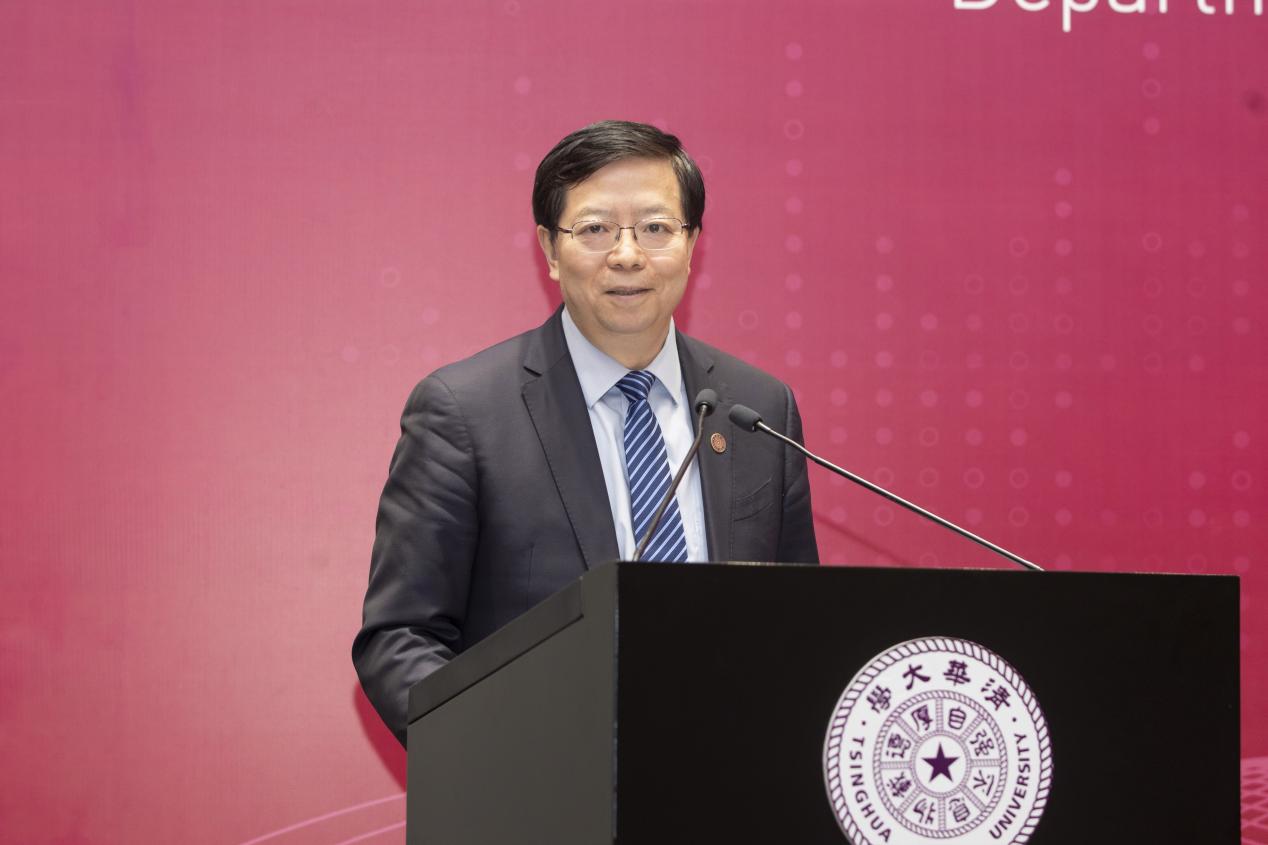
Qiu Yong addresses the ceremony.
In his speech, Qiu stated that General Secretary Xi Jinping emphasized at the National Health Conference the need to intensify fundamental research on mental health issues and strengthen the training of professionals in this field. The establishment of the Department of Psychological and Cognitive Sciences at Tsinghua aims to promote interdisciplinary integration, enhance research on the origins of consciousness, the essence of intelligence, and other fundamental aspects, construct and improve the theoretical framework of mental health, actively serve the construction of a healthy China, and strive to promote the development of human psychological health undertakings. The establishment of the Department of Psychological and Cognitive Sciences demonstrates the courage and commitment of Tsinghua people to proactively serve the country's major strategic needs.
Qiu emphasized that this is a mission that delves into the human psyche and strides towards the future. In such a pursuit, universities cannot be absent, and Tsinghua must not be absent. We must forever regard taking part in world affairs as our own duty and maintain a united and progressive attitude, contributing wisdom and strength to creating a better future for humanity. From the perspective of this new starting point, he hopes that the Department of Psychological and Cognitive Sciences will uphold and strengthen the Party's overall leadership. It should focus on the main responsibility of moral education and talent cultivation, lead high-quality development through high-quality Party building. As the nation strives for progress in education, science and technology, talent cultivation, the construction of a healthy China, and as the University is firmly marching towards becoming a leading world-class university, it should forge new glory for Tsinghua's psychology discipline.
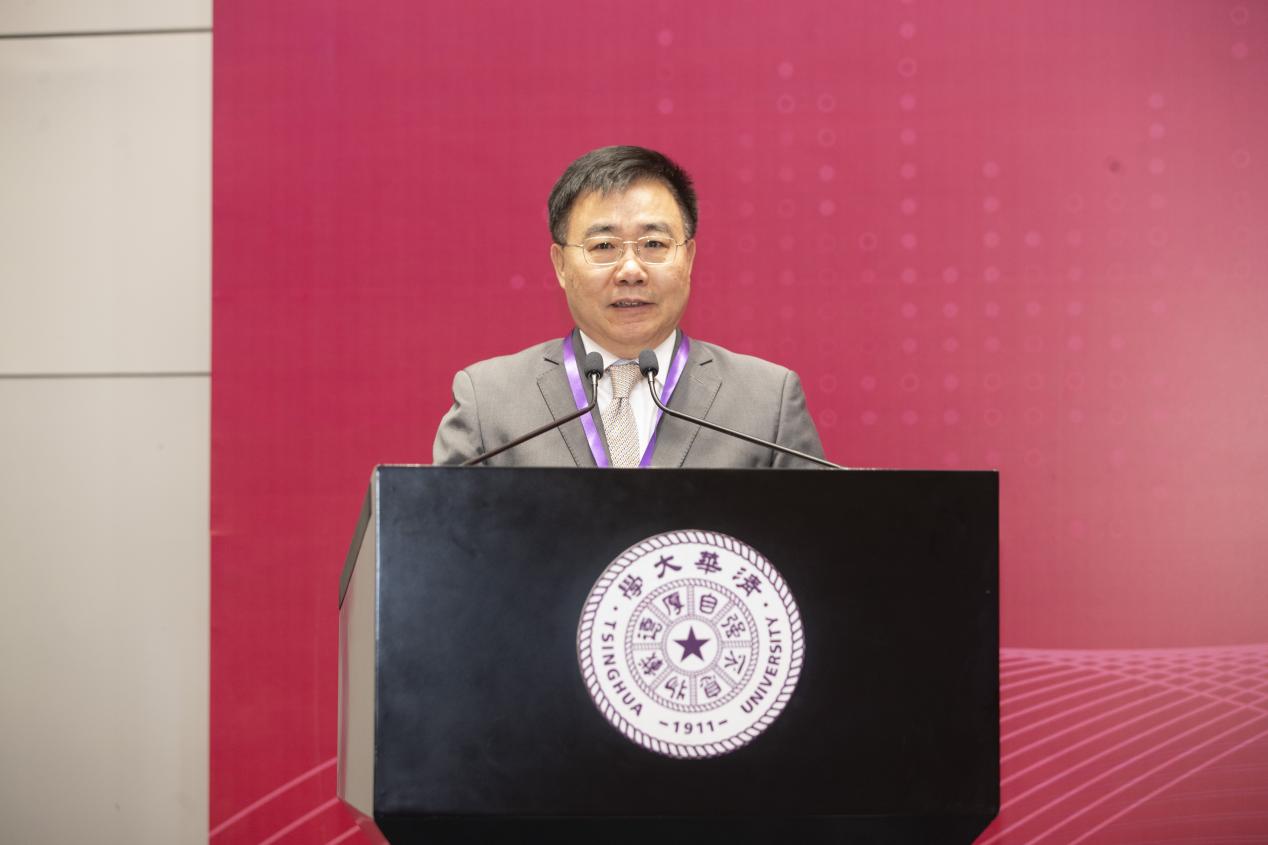
He Zhimin delivers a speech.
He Zhimin hopes that the Department will inherit and carry forward Tsinghua's fine traditions. He expects it to actively lead at the forefront of academia, and make greater contributions to safeguarding public mental health and mental hygiene. This includes serving the needs of the country and society, promoting social stability and harmonious interpersonal relationships, enhancing public happiness, and effectively promoting the implementation of the Healthy China strategy.
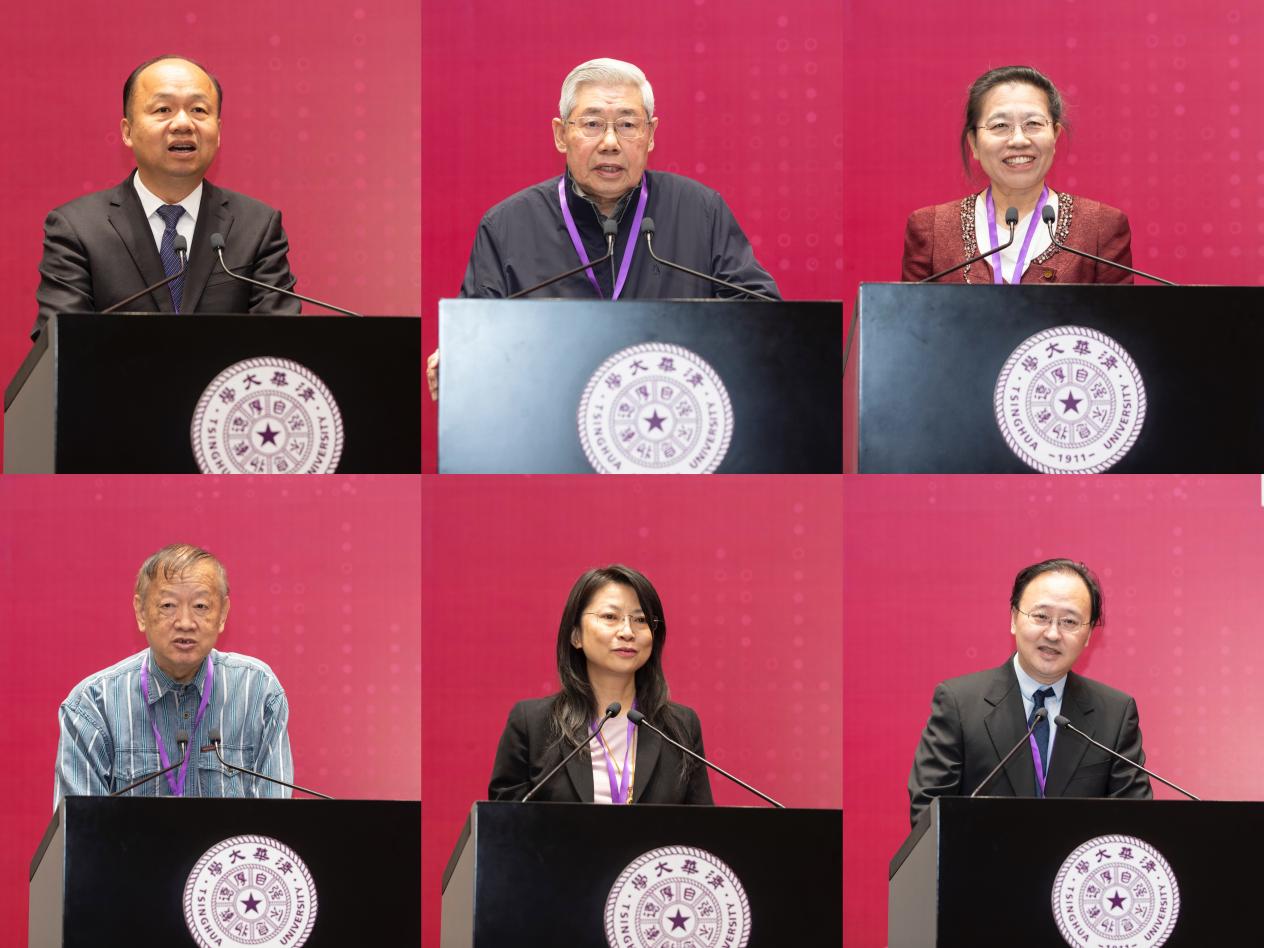
Yao Hongwen, Lin Chongde, Su Yanjie, Zhou Wenye, and Yan Wangjia deliver speeches successively, while Liu Jia provides an introduction (from left to right, top to bottom).
Yao Hongwen, Lin Chongde, Su Yanjie, Zhou Wenye, and Yan Wangjia delivered speeches consecutively, congratulating the establishment of the Department. Liu Jia presented the development plan and future prospects of the discipline.
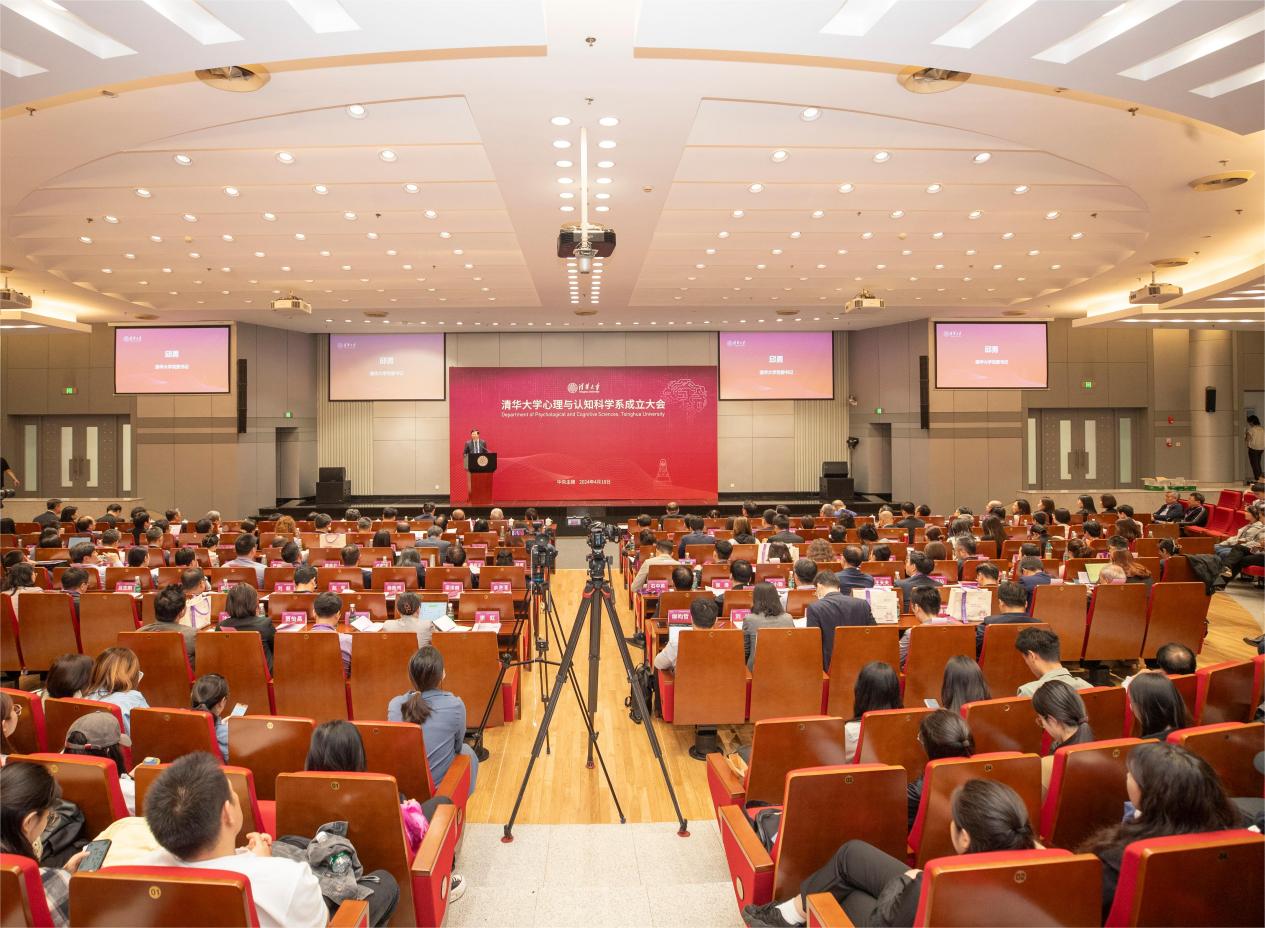
On-site of the founding ceremony
To coincide with the founding ceremony, Tsinghua held a seminar on the development of psychology, where experts and scholars gathered to delve into topics such as talent cultivation, theoretical innovation, cutting-edge research, and practical applications in the field of psychology.
Hundreds of attendees, including officials from relevant departments and sister universities, experts and scholars in the field of psychology, representatives from the business community and school-related units, as well as faculty and student representatives, participated in the founding ceremony.
Tsinghua set up the Department of Psychology in 1926, making it one of the earliest universities in China to offer a psychology major. During the nationwide restructuring of colleges and departments in 1952, the Department of Psychology at Tsinghua was incorporated into another university alongside the School of Sciences. After the reform and opening-up, Tsinghua gradually resumed research and teaching in psychology. In 2008, the university rebuilt the Department within the School of Social Sciences. Over the past decade, it has continuously elevated its level of disciplinary construction and social service capabilities, cultivating a group of high-level talents in psychology and producing a series of high-level research results in areas such as the study of the essential characteristics of human and machine intelligence and the development of psychological measurement methods based on brain-computer interface technology. The department has also been deeply involved in psychological crisis intervention in several major public emergencies.
Going forward, Tsinghua will develop the field of psychology according to two major research directions: cognition and computation, social psychology and mental health. By integrating psychology with disciplines such as cognitive science, neuroscience, and artificial intelligence, the university will primarily establish secondary disciplines such as general psychology and cognitive psychology. Furthermore, through the integration of psychology with traditional Chinese culture, the focus will be on constructing secondary disciplines such as social psychology and clinical and counseling psychology.
Editor:Li Han

